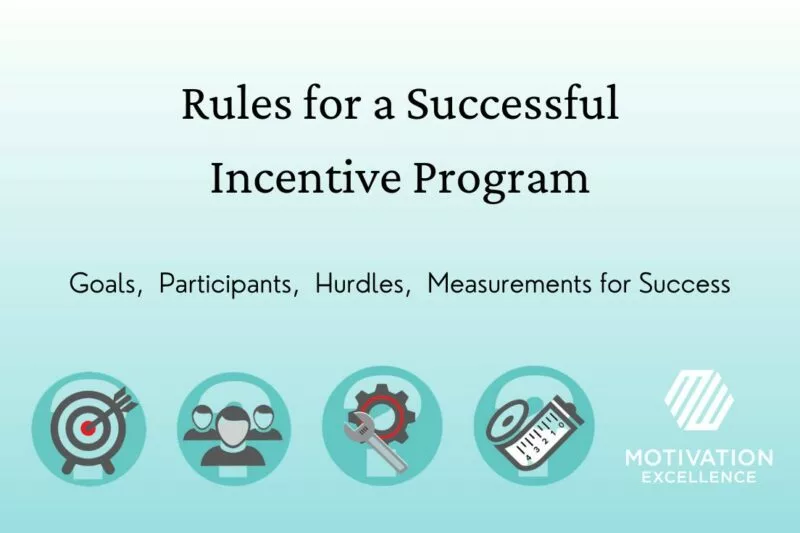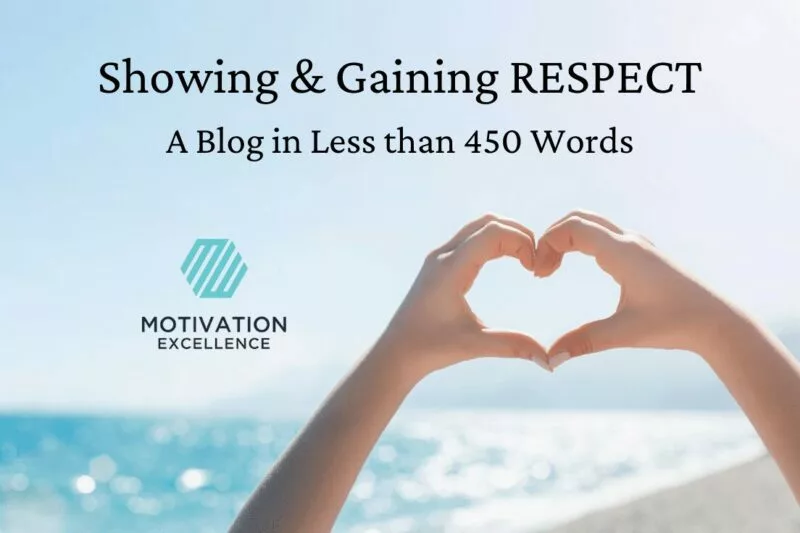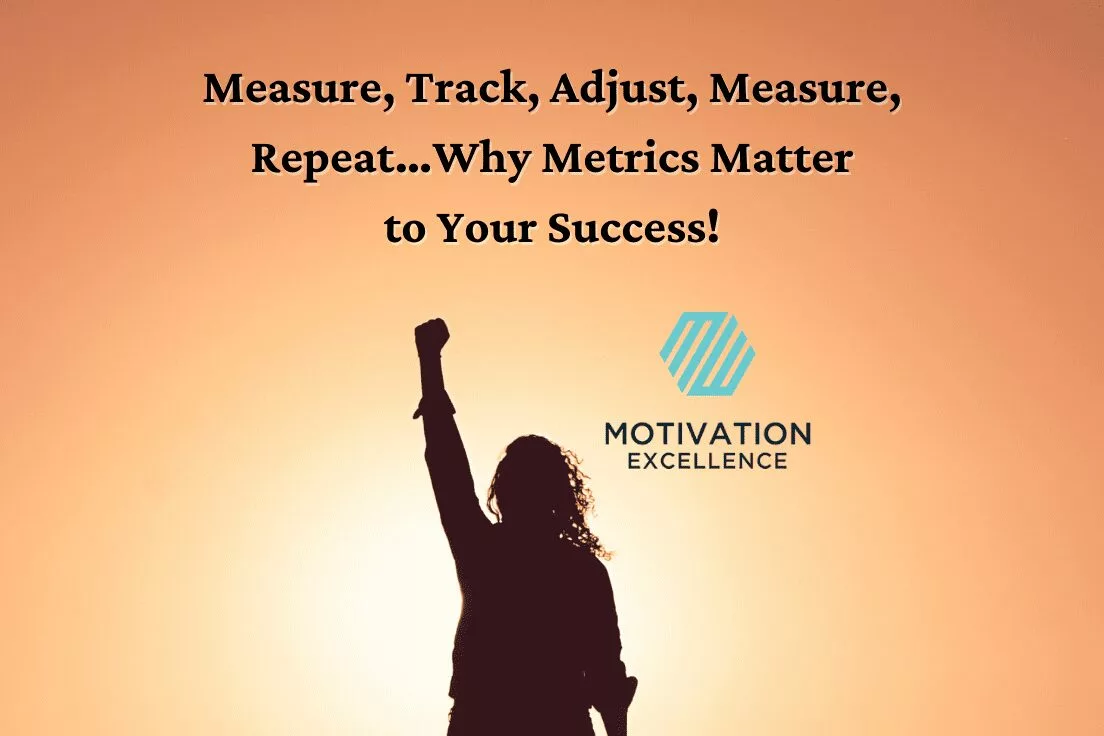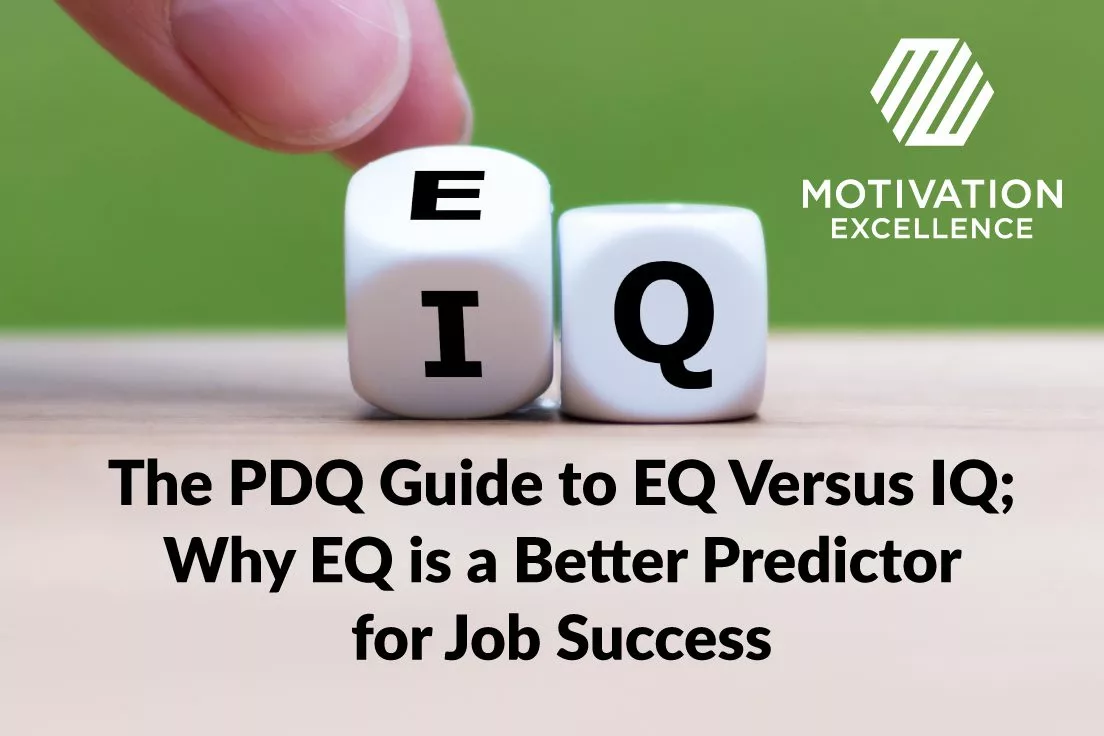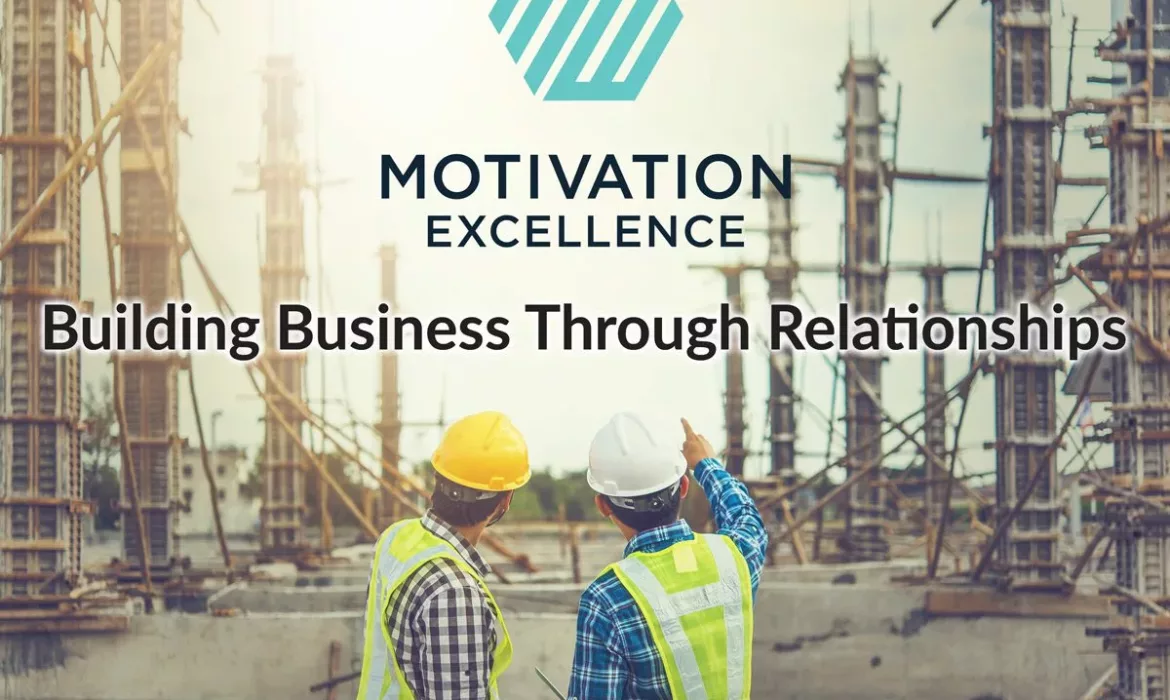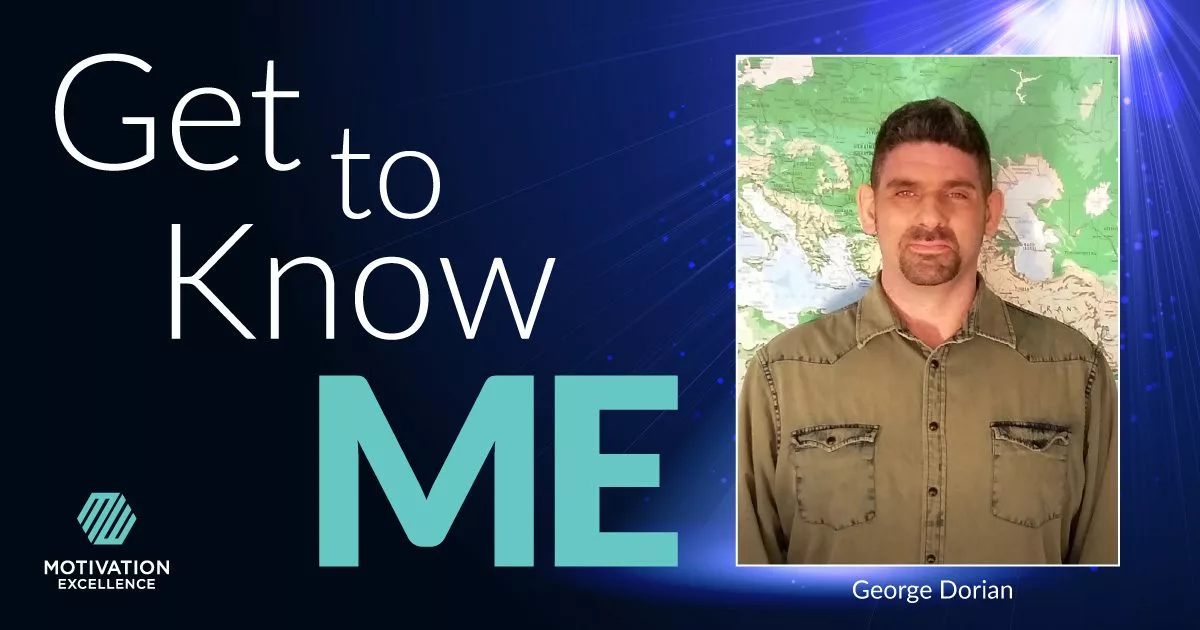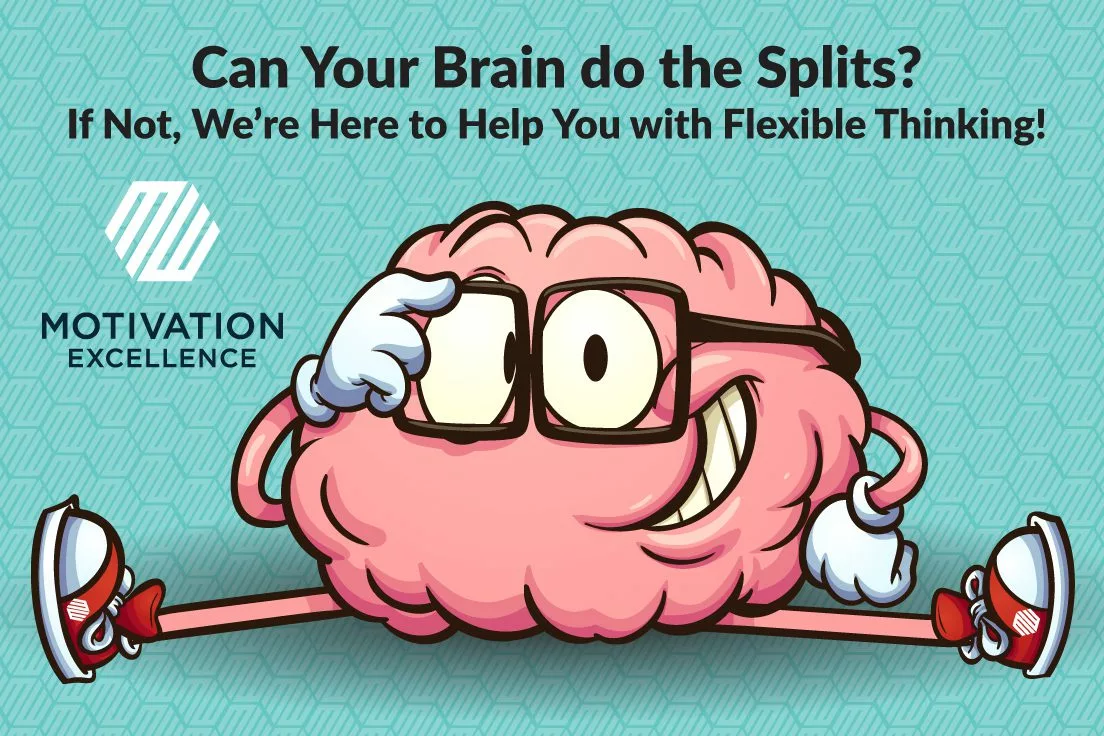Rules for Successful Programs (Incentive, Loyalty, Rewards)
As you embark on launching a loyalty or incentive program, we know one of the most important factors to its success is the rules structure. Some of our clients want to write the rules themselves, while others look to us for expertise. In either scenario, we work together to create meaningful parameters that sets up success for you and your participants.
We recently recorded a less than 15-minute webinar looking at what goes into writing program rules and why they matter. Be sure to check it out in our newsroom at MotivationExcellence.com. Bob Graham, VP, Client & Technology Solutions and Rhonda Brewer, VP, Sales join me to discuss the vital ingredients to creating meaningful program guidelines.
The process always starts with in-depth conversations with you. There isn’t a set roadmap to follow, but rather a journey of discovery that could take some time. We look at the market, your competition, performance goals, past issues and future possibilities to name just a few avenues we explore.
There are key things to look at in a few broad categories that are universal. Below we list those and give you a real-life situation to illustrate them better.
Goals:
We need to pinpoint what you want or need to get out of the program. Is it increased mindshare, more revenue or stronger channel relationships? Are you hoping to reward loyalty, improve employee tenure or recognize achievements? It could be any of these, multiple options or something entirely different. Without clear goals, the water gets murky from the onset.
Client X is in the building supply industry and wants to launch a new product line within their distribution channel. There are already two competitors with similar products in the channel. The primary goal is to capture market share so that at least 2/3 of the channel buys Client X’s new product within one year. The secondary goal is to reward distributors for making the purchasing switch. These two goals give us plenty to work on within our rules structure. We know we need to identify the decision makers in the channel and find the best motivator to woo them to choose our client’s new products over the competitors’ options. These solid goals allow us to create rules that will have natural measurements for success.
Participants:
Here we need to know your target audience. It could be employees, contacts in the distributor channel, customers or sales members. Knowing the audience helps us determine the best way to motivate the desired behavior change. The audience can vary from essential workers to top performing employees or channel partners. The rewards can equally vary from a 5-star group travel experience to gift card options to trending merchandise and lifestyle upgrade packages to individual travel and Concierge Shopping experiences. We have a 22-minute webinar on award options and whom they’re best suited to in our newsroom as well. Matching the participants to the right rewards increases engagement and the success rate of a program!
Client Y is a large medical testing company that wants to reward two different employee groups. First, they want to make sure they’re rewarding their top performers in the sales department. Second, they also want to make sure their entry-level couriers are encouraged to report possible revenue-changing activity out on their routes. With very clear-cut participant groups we know the motivation for each will likely be different, as well as the budget allocated to them. With two vastly different demographics, the rewards must be commiserate and aspirational for both. The sales team will have a longer earning cycle, but the couriers business intel can be rewarded more immediately. These groups will have two separate rules from which to play. The reward for the top performers in the sales department is a 5-star, group travel experience for at least 5 nights. This experience is filled with once-in-a-lifetime activities, networking with fellow winners and access to the top executives in the company. The reward for the couriers is a points-based program where they can redeem for a wide variety of trending merchandise, event tickets and individual travel options. Couriers can save up points for something truly memorable, or spend them on smaller treats as they see fit.
Hurdles:
You know your goals and your audience, but what obstacles will hinder their connection? Recognizing internal and external hurdles is important to designing a program structure. Sometimes it’s not having access to customer information like who the decision maker is. Industries with a lot of turnover in the distribution chain have a hard time keeping external data updated. A company trying to increase longevity of its own staff knows that turnover can be a hefty obstacle internally as well. Budget constraints are also important to recognize up front, as that affects how you connect with your audience and the types of rewards you want to offer.
Client Z is in the electrical supply industry. They have hundreds of thousands of customers but their internal tracking system is antiquated and decentralized. They want to identify customers who are large enough to assign a salesperson to them to help grow the account. They don’t have the budget to overhaul their tracking system. These are two huge hurdles! Offering a points-based reward program for internal sales representatives might be a cost-effective and motivating solution to start centralizing data. In addition, adding an element of competition among branches could spur more activity. Developing a far-reaching engagement campaign to capture basic customer information is another tactic to start building business intelligence. Knowing this is going to be a long journey is important as well.
Measurements for Success:
Finally, we need to understand how you define success. Does it have to hit a certain ROI or percentage of overall sales? For employee retention, what’s the golden length of time an individual stays that makes the program worthwhile? Without metrics – soft or hard – the success of a program isn’t tangible. If you can’t measure the outcome it’s hard to make meaningful adjustments to the program rules. Metrics can be very bottom-line type measurements tied to sales numbers, new customers or percent of market share. They can also be tied to engagement ideals like website visits and read email percentages. You can also measure an emotional connection. Has participating in this program made someone happier, feel better about their job or motivated them to improve? We have a whole blog with insight from Bob Graham on how important metrics are for measurement.
Client Q is part of the fencing industry and wanted to build stronger relationships with its customers, as well as, increase revenue across the board. New owners, acquisitions and mergers in recent years led to some organizational adjustments and lack of consistent customer interactions. The solution included a preferred buyer incentive program where customers earned a travel experience that included an on-site Buying Show with our client’s best vendors. Customers have access to show-only deals, networking time with other fencing contractors and company executives. There are training sessions, interactive social functions and world-class entertainment. The results not only have showed increased revenue since the program started 10 years ago (including year over year sales growth), but also increased engagement from customers who want to attend each year. In fact, this client’s million dollar customers grew from 12% to 25% of their attendees. Those are some great metrics for measurement!
Overall, having the proper rules in place not only creates incredible benefits for the current program but far into the future too.
- Minimize risk of going over budget
- Drive desired behavior changes
- Create a predictable return on investment
- Build goodwill within the channel
For more examples of how successful rules influences actual programs, please visit our Case Studies page on MotivationExcellence.com. We are here to help you create a meaningful, robust and successful program! Please reach out if you have any questions: ME@MotivationExcellence.com.
Showing and Gaining Respect, A Blog in Less than 450 Words
It’s all about the golden rule, isn’t it? Treat others the way you’d like to be treated. That is the bottom line regarding respect. Of course, there are other important ways you can show respect to others and lucky for you, we’re going to outline some of them right here! The best part is, when you show others respect in simple ways (Inc.com will give you 99 of them), you gain it right back!
And because we respect your time, this is going to be a rather short blog. If you take the time to read it and the links embedded, you’ll be well on your way to showing and earning reverence right away!
After doing research, I’ve developed my own acronym of sorts to help me remember to be on my best behavior at work and in life. We all need reminders!
Respond kindly
Exercise active listening
Support others
Praise appropriately
Encourage discussion and different opinions
Communicate politely with your voice and body language
Treat others how you’d like to be treated
Go ahead, and come up with your own meaning for each letter of RESPECT. It’s a great way to flex those mental and empathy muscles!
Respect is a critical aspect to positive company culture. Even when you can’t quite put your finger on it, you know when you feel disrespected. That feeling does not often motivate anyone to do anything but respond in kind, which exacerbates the situation. According to The Balance Careers, showing respect, and in turn receiving it, increases productivity and encourages teamwork. Focusing on this from time to time is a great exercise for all companies large and small.
From making eye contact to using respectful body language, we all possess the ability to practice showing deference, esteem or polite indifference. In fact, when you take the time to purposefully initiate and exercise respectful behaviors you might be surprised at how much you enjoy the results. PersonalDevelopFit.com dives into great ways to do this. The next time you are going into a meeting with one or multiple people resolve to be an active listener, leave your phone alone and contribute positively to the conversation.
As a final thought, don’t underestimate the power of gratitude and appreciation when it comes to showing this topic. A well-placed and meaningful “Thank You” will endear you to the recipient and pave the way for a respectful relationship going forward.
As promised, this is a short one. Now go off and exercise respectful interactions. The world will instantly be a better place!
Measure, Track, Adjust, Measure, Repeat…Why Metrics Matter to Your Success!
Guru is a Sanskrit term for mentor, guide, expert, or master of a certain field of knowledge. There are gurus for everything, including business metrics for measuring success. His name was Peter Drucker and he is widely acknowledged as the inventor of modern business management. One of his most famous quotes is:
“If you can’t measure it, you can’t improve it.”
– Peter Drucker
At Motivation Excellence, we have our own guru of measurement. His name is Bob Graham and he’s the Vice President of Client and Technology Solutions, but honestly, when we introduce him we say he’s the “king of data” or our “rules aficionado.” At any rate, you can tell, we respect his expertise in this area. As our “passionate advocate” for this blog, Graham says establishing and measuring critical data points is essential to the success of incentive, employee, and loyalty programs.
“Metrics allow our clients to know if they used their budget, internal resources and relationships in the channel effectively. That doesn’t always mean financial metrics. Without metrics, you don’t know if you were successful in moving the business forward or achieving the intended goals.”
Start at the Beginning
Understanding your starting point is the springboard to moving forward. If you don’t know where the starting line is, how can you know when you’ve crossed the finish line? This is important not only to a myriad of business applications but personal ones too. Whether you want to increase sales, improve partnerships, lose weight or run faster, knowing where you are now and where you want to be eventually is the first step toward making informed decisions that can lead to success.
For our clients, Graham states it’s never a one-size-fits-all solution.
“Since each company’s goals are different and the way they operate is different (even in the same vertical) we need to start fresh with each client. Identifying the goals, understanding the data and performance needed to achieve those goals are the starting points to build the measurements.”
Graham continues that understanding what will motivate participants to reach the goals is another important factor to consider. Another factor? Avoid setting unrealistic goals.
“Setting mutually beneficial expectations through the program rules that achieve the goals and provide a meaningful reward for the participant through the program structure, award selections and communications is the balance that creates the optimum results.”
Focus on What’s Most Important
When used well, tracking metrics can be very motivating, even for those struggling or those already excelling. Setting up short, medium, and long-term goals gives you metrics to track and adjust at each level. Don’t get overwhelmed tracking EVERYTHING. Focus on the most important objectives and pinpoint the metric that gives you the most information.
As with most personal and professional development skills, there are many tips on how to become better at selecting and measuring metrics for success. Whether you’re a CEO trying to break into the top tier of your vertical, or a weekend warrior training to compete in a triathlon, finding your critical metrics will put you on the right path from the beginning.
Repeat Your Success
There’s a saying in the carpentry world, “measure twice, cut once.” In the business world, when it comes to metrics for success a better saying might be, “measure often, adjust as needed, and build your success more than once.”
For us at Motivation Excellence, when our clients succeed, we all feel a sense of accomplishment, which feeds our desire to repeat it over and over. That’s a metric of not only customer satisfaction but also employee fulfillment. Remember, Graham says not all metrics are tied directly to financial numbers.
“Success is when our teams are successful at exceeding our clients’ and participants’ expectations and building great programs that achieve our clients’ goals. Equally as important, each team member needs to enjoy their time at work and feel they are contributing.”
When you look at satisfaction, fulfillment, lasting relationships, and retention (of both customers and employees), you will see the higher the metrics rise the more successful a company is from the bottom line up! For someone trying to achieve personal goals, you’ll notice each metric hit creates momentum toward the next measurement. The trick is finding the correct metrics to measure, selecting realistic goals, and following through with consistent tracking. What is your plan for measuring success?
The PDQ Guide to EQ Versus IQ; Why EQ is a Better Predictor for Job Success
May is mental health awareness month. It’s also a time we celebrate moms, often our emotional support advocate. Finally, for students and teachers it’s the end of the year, which usually brings on extra stress. This is the perfect month to talk about EQ!
What is EQ?
We know that IQ stands for Intelligence Quotient. Have you heard of EQ? It’s your Emotional Intelligence. VeryWellMind.com likens it to book smarts versus street smarts.
IQ looks at:
- cognitive abilities
- memory
- reasoning
- visual and spatial processing
- general knowledge of the world
EQ looks at:
- identifying emotions and motivations
- perceiving how others feel
- self-regulation and awareness
- empathy
- communication skills
Both have significant roles in our lives, and there’s a lot of discussion about which one is actually a better predictor of success. Having a high IQ certainly sets you up to a certain level, but EQ proponents will argue that a high emotional intelligence score puts you ahead of the pack when it comes to leadership and rising the ranks.
World Economic Forum recently reported very interesting statistics regarding EQ. RallyBright.com echoed the findings. It’s a top skill to have for career success.
- Those with high EQ are 127 times more productive than those with low EQ
- EQ is responsible for 57% of job performance
- When compared to someone with similar IQ and technical skills, EQ accounts for 90% of why someone gets promoted
Why EQ is Important
Now that we’ve established what EQ is, let’s look at how it can create a better trajectory for your career (or life in general, really). Psychologist and author, Daniel Goleman, is a thought leader on EQ. He details the five characteristics of high EQ and how they equate to better leaders. You can hear him talk in depth on this topic in a March Sounds True podcast.
TalentSmart, an EQ training company, found that EQ also equates to a higher salary. According to their research, people with a high degree of emotional intelligence make an average of $29,000 more per year than those with a low degree of EQ. In fact, they report that every point increase in EQ equals a bump of $1,300 to an annual salary.
Maya Angelou is quoted as saying, “I’ve learned that people will forget what you said, people will forget what you did, but people will never forget how you made them feel.” This is what emotional intelligence is all about. If you leave someone feeling good about themselves, their project or just life in general, they’ll remember that sense of good will and appreciate interactions with you.
Think about it. Whom would you rather work for: a negative, insulting, know-it-all, or a kind, inquisitive and compassionate person? As a leader, do you know the names of your employees’ kids? Are you empathetic to struggles at work and at home? Do you understand what motivates each team members’ best performance? If you answered no to any of those questions, it’s time to work on improving your EQ score!
Boosting Your EQ
While your IQ score might not change much over time (although you can always be a lifelong learner), you have the power to increase your EQ through practice and mindful decisions. Start with taking an EQ quiz or two to gauge your starting point.
The Institute for Health and Human Potential has a very quick (less than two minutes) quiz to get you started. Psychology Today has a much longer version (45 minutes) if you really want to continue this journey.
There are also a variety of tips to increase your EQ score over time. Inc.com shares ten strategies to enhance your EQ no matter your starting score. They include:
- Communicate assertively (not aggressively, or passively)
- Respond rather than react
- Be an active listener
- Learn self-awareness
- Be sociable and approachable
Research shows companies who hire employees with high EQ see major increases in total sales and productivity. In addition, 90% of top performers earn high EQ marks. This so-called “soft skill” has the ability to bring in hard results while improving company cultures. If you want to find yourself at the top of your career path, EQ will be one of the best skills to develop!
Building Business through Relationships – a White Paper from Motivation Excellence
Name an industry the pandemic hasn’t affected for better or worse? Stumped? Practically every aspect of our lives has seen upheaval and the building industry has certainly not been immune. In fact, with increased demand for home renovations, fluctuations in commercial projects and supply chain interruptions, this industry is riding quite the swells.
This is a vertical close to our hearts at Motivation Excellence. We have enjoyed working with clients in flooring, electrical, fencing and construction product manufacturing to name a few. Because of their delivery chain, we’ve worked with them to improve relationships with their own sales teams, their distributors and their sales teams, and the final customers.
Below we review, at a high level, three case studies to give you a summary of how our solutions helped increase sales, build relationships and grow loyalty for our clients. While these are specific to the building industry, many other verticals can benefit from well-planned incentive programs.
Case Study 1: Electrical
Goals –
- Increased brand recognition
- Significant sales growth
- Vendor buy-in to help fund the program
Solution –
- Segmentation of their 100,000+ customer base to capture the top and middle performers
- Incremental sales goals were assigned to the top 20%
- Tiered award offerings to motivate each customer level (including two group travel levels and award point earnings for smaller customers)
- Projected sales growth helped secure vendor buy-in
Results –

- This program continued for more than 20 years, resulting in sustained growth with participating customers year over year
- Enrolled participants outperformed the market trends in a down, up and even market (see graph)
- ROI was more than 200%
- Market share increase achieved
- Vendor contributions significantly paid for program costs, and they realized increased growth as well.
Case Study 2: Flooring
Goals –
- Motivate commercial flooring contractors to buy more from them
- Create a self-funding program
Solution –
- Dove into four years of company sales history as well as industry data
- Increased audience size by 3.5 times to meet client’s aggressive growth and self-funding goals
- Targeted communications to keep inspiring middle performers to reach higher
- Created award options to motivate both the highest and middle performers, including travel and award points earnings
Results –
- 627% ROI: program profit contributions nearly doubled the expected, and the program was completely self-funded
- Equity among participants was built through data analysis, setting reasonable goals and offering desirable rewards
- Engagement among the participants build stronger relationships
Case Study 3: Fencing
Goals –
- Increase revenue from fencing contractors in the United States and Canada
- Build stronger relationships with the largest customers
- Be a source of education for customers on growing their businesses
- Engage internal sales associates, help them create bonds with customers
Solution –
- Built a travel incentive program rewarding the top customers and their guests
- Targeted gift mailings to contractors on track to meeting qualification for travel
- Created an exclusive Buying Show featuring best vendors with show-only deals during the incentive experience
- Included sales associates on engagement campaign emails to keep their excitement high
Results –
- Revenue growth for each qualification period
- Million Dollar Customers grew from 12% to 25% of the incentive winners
- Greater customer knowledge and relationships
- 71% of enrolled customers qualify to attend the incentive event
- Many repeat winners vowing to return for each program
These are just a few examples of Motivation Excellence solutions that can help drive results for increasing revenue, loyalty and stronger relationships. A successful incentive program starts with a lot of research up front, a growth-based rule structure and plenty of metrics to measure achievement. It takes a close partnership with our clients to create the best plan for success. Once that’s all in place we can launch a program within four weeks.
If you’d like to see our case studies, please visit the Newsroom tab on our website. You can also watch our “Building Business through Relationships” webinar from April 2021 on our website. It contains a more in-depth conversation about all three of the above programs. In addition, you can hear directly from our fencing client contact about his company’s Buying Show experience.
Get to Know ME with George Dorian
George Dorian is a long-timer at Motivation Excellence! He’s a fixture in our IT department, helping our clients and internal team develop useful websites and data processing procedures. Read more below to find out his history with the horror industry, why he feels so connected to his co-workers and wisdom on flexibility of thought. Thanks George for sharing!
What’s your title and how long have you been at Motivation Excellence?
Business Applications Developer/Database Analyst and I’ve been here on and off for 21 years.
What does your job entail?
Building technology solutions for all kinds of enterprise needs, mostly program administration; usually translates into creating some logical model, and then building infrastructure/coding, and testing/deploying a deliverable.
What’s something special about working at Motivation Excellence that you’d like to share?
Co-workers are always buying my daughter gifts – this goes directly to my heart and immediately builds a very strong bond between us.
What’s your favorite part of your job at Motivation Excellence?
The problem solving and the people I work with.
What’s an unknown or odd talent you have?
People have always shared very personal problems with me and asked for advice, since I was a child.
What motivates you to accomplish things in your life (work or personal)?
Inner drive, a sense of duty –part of my identity.
What do you enjoy doing outside work?
Spending time with my family. Learning new things. Music. Reading. Art. Bookstores. Libraries. Museums. Movies. Concerts (remember when?).
One thing that always makes you laugh is?
Mice Elf.
What have you done that helped you get through the pandemic?
Work out a lot more, more art projects – day trips to local prehistoric sites are probably the best new hobby to come out of it.
What is the most unusual job you’ve ever had?
I briefly worked retail and horror convention security.
This month, our theme for social media is mental flexibility. How do you relate to this theme? Any tips on how you try to be flexible in thought?
I would fail at my job if my mind was rigid, never mind how boring life would be – and boring can be worse than bad.
Flexibility of mind comes from habits, and must be exercised, just like your body’s flexibility, and it’s heavily woven into your personal development and growth. You have to practice opening your mind, it doesn’t happen naturally – just like being fit.
Alice laughed. “There’s no use trying,” she said: “one can’t believe impossible things.”
“I daresay you haven’t had much practice,” said the Queen. “When I was your age, I always did it for half-an-hour a day. Why, sometimes I’ve believed as many as six impossible things before breakfast.”
-Lewis Carroll
Practice every morning – try and think of six impossible things – for your own amusement. Challenge yourself, continually question everything, including the question itself, and your preconceptions. Surround yourself with people who will creatively challenge you. Listen. Discuss. Read (or get an audiobook or Blinkist – no excuses anymore). Every book is at least one person’s wisdom, mine it for the gems that impact you and help you grow. Try and view everything as a learning opportunity. What did I learn from seeing that movie? That video? No one knows everything. Going from imagination to reality is sometimes difficult, but you can’t go the other way. Start from a cosmic view, and then whittle away the constraints of your time and your place.
Until she invents a Time Machine, then start all over again. 😉
Can Your Brain Do the Splits? If Not, We’re Here to Help You Increase Your Flexible Thinking!
We all know nurturing flexibility is great for our bodies: it reduces injuries, improves posture and increases mobility. There are multitudes of exercise programs that focus on improving body flexibility as part of overall health and wellness. Maybe you practice yoga or make sure you stretch your legs and back well before and after a run? How often do you stretch your mind though?
According to Dr. Daniel Amen, just like there are maladies associated with being physically stiff, there are mental problems associated with inflexible thinking. Anxiety and OCD are two disorders linked to people unable to change their thought patterns. Road rage is also a symptom of inflexible tendencies! And, we all know at least one person in our life who is all about saying no rather than trying to go with the flow.
In our last 16 months of blogs, having the ability to adapt was positively linked to at least seven of our personal and professional development topics:
If any of the above are important to you, keep reading to learn more about how you can increase your ability to change without too much resistance coming from inside your own head.
Flexibility = Ability x Agility
Pre-pandemic your brain flexibility skills were surely tested here and there, but now that you’re living through it, you might feel like you’ve been tested, tried, twisted through a wringer and hung out to dry by a toenail or two…on a daily basis! The more flexible your mindset, however, the better off you’re likely surviving our current situation.
Best-selling author Leonard Mlodinow says “elastic thinking” is where our ideas come from. The hurdles pop up when our ideas compete with the parts of the brain that want to censor them. Having good cognitive flexibility allows you to jump those hurdles with greater ease (and without pulling a hamstring).
Indeed posted an article about the importance of thought flexibility when it comes to your career. Mentally flexible people tend to be less stressed, overwhelmed and stifled at their jobs.
There is a lot published about teaching flexible thinking to children. Kids who can adapt faster are less likely to throw tantrums and succumb to anxiety. If it’s good for kids, it’s even better for adults!
Stretching Your Mind
Just like learning to do the splits, there are tips and tricks to training your mind to be more flexible. Below is a list compiled from the links in this blog. Use them all or hone in on one or two and see what kind of progress you make over a month.
- Accept that change is inevitable – if you expect things to change, you’ve already taken the first step in making your brain think of alternative scenarios. Better yet, you’re already thinking about how to navigate potential new paths to your goal.
- Develop a plan B (and C, even D) – Scouts are always prepared because they are taught to have more than one backup plan. If a bear eats their dinner, they have a fishing pole at the ready. If you think ahead and can foresee the possibility of change, push yourself even further into the future and develop alternative solutions.
- Be hopeful – there is definitely a relationship between positivity and a flexible mindset. As we live through this pandemic it’s easy to fall into a negative thought pattern: everything is canceled, when will I ever feel safe again, I miss everyone. Twist your negative thoughts into positive ones: it’s nice to not be over-scheduled, as soon as I can I can’t wait to “fill in the blank,” once we’re vaccinated I’m planning to see my family again.
- Find space – even if it means closing your eyes and expanding your mind’s eye into the darkness, when you explore large areas your mind naturally opens up. Sitting on a dock overlooking a lake, enjoying the open space of a large park or driving on an open road (with the top down too) can alleviate feelings of constriction and allow you to physically and mentally relax and stretch.
- Exercise – endorphins are famous for making us feel better. When you find yourself stuck on a problem or a negative thought pattern, take an activity break. It’s not only great for your physical body, it helps your brain break focus and wander in other directions.
- Breathe – when you’re tempted to instantly say no to something, take a deep breath and count to five (or maybe ten). This helps redirect knee-jerk reactions and gives you time to take your thoughts down a couple different paths before landing on your answer.
- Eat better – people with less flexible thinking tendencies may be low on serotonin. Eating foods like chickpeas, nut butter, green peas, turkey, sweet potatoes and eggs boost serotonin. You’re fueling your brain, just as if you’d fuel your body for a race.
- Play critical thinking games – grab some friends and head to that new escape room. Download a game app that challenges how you solve puzzles. Anytime we push ourselves to resolve a problem in an “out of the box” way, we’re helping our brain stretch and grow!
Being cognitively flexible sets you up for not just surviving, but thriving through the inevitable changes thrown at you! Quite honestly, practicing it is probably much easier for most people than trying to do the splits. You’ve got the understanding and some tips to get you going. The next time you feel entrenched in the “well, that’s the way it has always been done” mentality, let your brain show your legs what flexibility is all about!
When the World Opens Up: A Look Outside the Pandemic Tunnel
- Can you safely dream of travel again?
- The latest vaccination and travel trends
- Hear from some of the Motivation Excellence travel team about their group travel dreams and predictions
- The hybrid future
Can you see the light at the end of the tunnel? There are some great things to report, and cautions to still heed, but after more than a full year of the coronavirus pandemic, people are dreaming more of “when” they get to travel rather than “if.” Our Motivation Excellence travel department certainly is. Below we’ll share with you some of their travel dreams and thoughts for future group travel, as well as current advisories, countries open to visit and more!
The Current Situation
The United States is now seeing vaccinations on a steady increase. The Centers for Disease Control reports more than 81 million people in the U.S. have received at least one dose (as of March 21, 2021). Roughly 2.49 million people are getting a shot here every day. According to Our World in Data, the United States is among the top countries with the highest vaccine doses per 100 people. Israel, United Arab Emirates, Chile and the United Kingdom are outpacing us as of March 22, 2021.
Currently there are dozens of countries allowing U.S. tourists in, however, beware that air passengers need to show proof of a negative COVID-19 test within 72 hours before returning to the United States (even citizens, even from Hawaii). Favorite pre-COVID destination, Europe, is seeing lockdowns extended in many countries with a third wave of the virus hitting right now, keeping tourists at bay for the time being.
The U.S. State Department is a great resource for travel advisories, as is the CDC site. Domestic and international travel is not recommended at this time since it still increases your chance of getting and spreading COVID-19. However, based on airline traffic reported by the TSA, nearly one million more people traveled March 21, 2021 than did on March 21, 2020. The 2021 data is still nearly 700,000 behind the TSA data for travelers on the same date in 2019.
The numbers are clearly showing that for Americans, as the vaccination percentage increases, the desire to get back to traveling is also rising. Are you ready to travel again? Keep reading for our takes on traveling now and in the future.
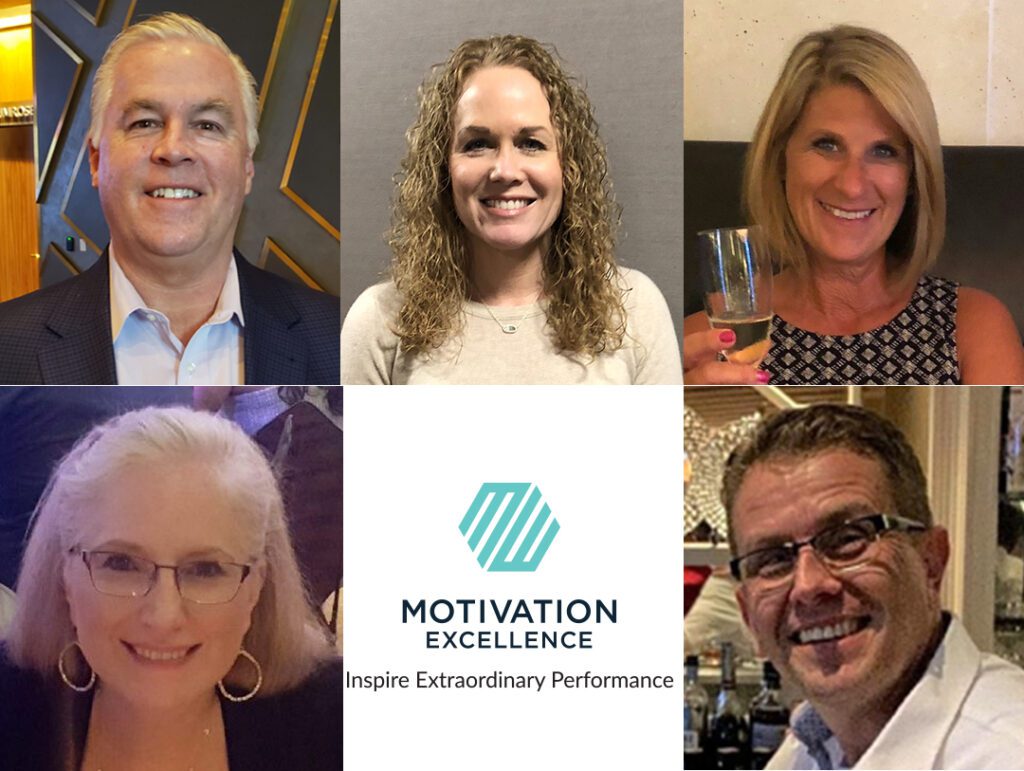
Moving Forward: A Q&A about R&R
In the spirit of positivity and looking ahead, part of our travel team answered a series of questions regarding group travel. Below are their answers. Enjoy joining in with your own answers and dreams!
If the world opened up tomorrow, and you could take a client anywhere for group travel, where would you want to go and why?
Brad Hecht, VP Travel – “Rome and mingle with all the people and dine like there is no tomorrow!”
Heidi Brand, Program Operations Manager – “Switzerland! It’s the most beautiful, picturesque country. When you look at the countryside and the mountains, you feel as though you are looking at a storybook. The people are genuine, relaxed and extremely hospitable.”
Tina Roszak, Travel Program Manager – “Kyoto, Japan for the historical landmarks, culture and natural beauty.”
Jayne Schmitt, Travel Operations Supervisor – “That’s difficult! There are so many great places and I go between wanting beach and surf to old country European charm. I think it’s really just about getting people back together again.”
Joe Reise, Manager, Supplier Relations & Sourcing – “Portugal. It’s a destination within Europe that has a lot of history (i.e. Lisbon is the oldest capital city in Continental Europe), great weather, and also a destination that most Americans don’t visit the first few times they go to Europe (they go to London, Paris, Rome first usually). Also great value for money and a large variety of things to see and do in this unique European coastal country.
Will “old favorites” be the first place to fill back up?
Brad – “Las Vegas is ramping up like crazy, as is Nashville. Some places in Europe could still be susceptible to closures do to lagging vaccines, but the United States is doing well. ”
Heidi – “I think old favorites such as Hawaii, Mexico, Florida and Arizona will be the first to fill up as the weather is generally nice and most events can be held outside.”
Tina – “I think popular U.S. destinations will be the first places to fill back up, specifically places that highlight outdoor activities and landmarks (Tennessee Valley in the fall, skiing in Colorado, National Parks in Wyoming, ranches in Montana, beaches in Florida). My guess is people will take baby steps in 2021 before being comfortable and safe enough to travel out of the country.”
Jayne – “Mexico is one of my old favorites. I’m not sure it will be the first to fill up just because of the flight, passport needed and the unknown should you get ill (COVID) while there.”
Joe – “Hawaii, Las Vegas, Orlando and London (because of the unique culture and history) will be among many to fill-up. I think that some other major metro cities like NY and LA will have a slower start with people going back, especially for large conventions.”
Are there advantages to finding new hot spots, or is playing it safe the best way to go?
Brad – Finding new hot spots is great, but “proceed with caution” is the rule. A lot of fun can still be had!”
Heidi – “Playing it safe is probably the best way to go.”
Tina – “There’s always an advantage to finding new destinations that capture all types of interests…with once-in-a-lifetime experiences, but safety will always be key.”
Jayne – “It’s going to be about local guidelines. The comfort of the client will also play a huge role in deciding a destination, whether it’s new or a much-loved standard.”
Joe – “I think there are always advantages to finding new hot spots for 2022. Fun to explore new places that also offer exceptional value, as long as they meet the criteria for quality, safety and variety.”
What are your predictions for new popular places?
Brad – “Warm weather and outdoor event space will be at a premium and probably not in Europe for a while based on vaccination rates. I’m excited to take a group to Dubai in the future. It’s really unique and beautiful!”
Heidi – “Places that are warm destinations and can handle outdoor events.”
Tina – “I think people will start venturing out by being a tourist in their own city, county or state. For those aching to travel, I think they need to choose wisely based on COVID stats and know what’s open and what’s not (attractions, shows, parks, etc).”
Jayne – “I think the places that are handling this the best as far as guidelines and positivity rates will be the first in line for taking group tours.”
Joe – “I think it currently is and will continue to be, more remote resort areas in nature (i.e. mountains, beach, desert, etc.) that offer opportunities to do lots of things outside, including activities and dining.
What are you most looking forward to on your next group travel program?
Brad – “Fun, lively restaurants!”
Heidi – “Seeing the joy in people’s faces and watching them make memories of a lifetime!”
Tina – “Seeing my travel staff friends!”
Jayne – “Being with people and seeing the joy on their faces!”
Joe – “Enjoying all of things we did pre-COVID. Eating in a nice restaurant, exploring all sorts of sites, relaxing on a beach, and really just being back together with other humans seeking to relax and enjoy themselves on vacation.”
Anything you’d highly recommend to people looking at dipping their toes back into the travel pool?
Brad – “Hawaii, the Caribbean and Mexico are all great places open now that you can go to relax. There are also many resorts in the U.S. that are amazing!”
Heidi – “Be flexible and open to change; spend as much time outdoors as possible.”
Tina – “Research all that you can about where you want to go. Be aware of, and follow, the rules and customs of the destination. Be conscious of your actions and surroundings. Don’t be a naïve tourist! Knowledge is power – know where not to go (safety), when to visit attractions, etc.”
Jayne – “Just follow guidelines. Be safe and protected, have plenty of hand sanitizer, masks, etc. Do what you feel comfortable doing as far as driving versus flying, etc.”
Joe – “As with any recommendation, we always suggest that you find a place where you feel safe, can afford, and that offers many things that interest you and that you will enjoy. To each his/her own. Often, there are many destinations that will fit your criteria and I suggest that you compare and contrast a few before deciding.”
Some Final Thoughts on Incentive Travel/Meetings/Events
The pandemic definitely showed us that we miss being together. Virtual events made huge leaps to help connect us, but in-person interaction will always be the gold standard in the incentive travel, meeting and events industry (and in life, in general, don’t you agree?). The amazing new virtual space technology brought on by COVID-19 will always have a place moving forward though and in fact, will allow more people to engage with messages, products and peers.
Jayne sees a future of using virtual technology even after in-person events comes back fully.
“I think we will have a hybrid piece for a long time going forward. There will be people that will not want to travel or maybe just not fly for a while. That will also open up certain experiences to many more people than maybe attended in-person events. It’s a new world in events and we have to look for the positive strides we can make for our clients and participants!”
Tina agrees and sees a budget component clients will want to keep in mind.
“Statistics show that hybrid events require more staffing than a live event: to moderate sessions, manage live chat/Q&A boxes, and they definitely require having a dedicated, experienced AV technical team.”
Joe adds that COVID-19 has and will continue to change how our industry functions, but in a truly positive way.
“This will be an evolutionary process, but one thing for sure is that COVID has forever changed how group gatherings will be conducted in the future, especially in the areas of health safety, sanitation, and the structure of event spacing.”
We may feel like this has been an unending and exhausting exercise in patience, but we are slowly and surely getting closer to the time when we’ll need to don our sunglasses because the light is indeed getting brighter! 😎
Self-Awareness Doesn’t Have to Be a Sink or Swim Situation; Learn to Float in 5 Steps
Leading the Way
There’s nothing quite like writing a blog about self-awareness to plunge you into the depths of your own being. At least now you’re reading it, so there are two of us swimming together. Don’t worry, I won’t take you too deep, but maybe grab your floaties, just in case.
Self-awareness is essential on your journey to self-improvement. Self-awareness leads people to understand when an opportunity is a good fit and how to make appropriate decisions for success according to Psychology Today. It’s also a leading indicator for success at home and at work. More than 50 CEOs listed a lack of self-awareness as the biggest challenge to leadership potential in a recent Forbes article.
Let’s be real though; assessing your best and worst traits, defining your character, naming your feelings, admitting your motives and declaring your desires can be scary, overwhelming and quite possibly anxiety-inducing! (I told you to bring your floaties.)
It’s All About Balance
Very Well Mind shares there are two types of self-awareness: public and private. In public self-awareness, we are cognizant of how we appear to others and it likely influences us to conform to social norms. However, this is also the arena anxiety can creep in. Are you prone to “foot in the mouth” disorder? Ever feel like everyone’s looking at you as if you have TP stuck to the bottom of your shoe? Do you overthink every social interaction until you want to throw up? Chances are you’ve been in one of those situations at some point in your life. The good news is you are already on your way to better self-awareness. You just might need some help balancing your yin and yang to control the anxiety overdrive.
Develop Good Habits reports people with good self-awareness skills have an easier time understanding others and are able to detect how others perceive them in return. Being able to articulate your motivations, beliefs, strengths and weaknesses will lead you to better pinpoint your passions, emotions and goals. Basically, being self-aware helps you understand your “why” which will lead you to your “how” as you make your way through life’s journey. Self-awareness and core values play hand-in-hand guiding your daily decisions. We wrote about core values last month – be sure to check it out.
Take Our Advice
Let’s get to the “how” of developing self-awareness. Every article linked has tips to developing and enhancing self-awareness. Below is a list of the top pieces of often-repeated advice.
- Write it down – yes, we’ve covered this before in our blog about goals. It seems journaling or writing in general, is a recommended step for many self-improvement objectives. Write down your traits (good and bad), your motivations (what makes you tick?), your reactions to various situations (being applauded, embarrassed or criticized), your proudest moments and your least-want-to-remember moments…all of this writing will lead to a more objective view of yourself hopefully.
- Take feedback – the good, the bad and the ugly. If you’re brave enough you can actually ask colleagues and friends to tell you what they see as your strengths and weaknesses. Implement practices and procedures to receive feedback on a regular basis.
- Be mindful – take time to self-reflect daily. Be present as much as possible (don’t cloud your mind with things left to do as you finish a current task). Learn meditation skills.
- Listen well – take in what others are saying and understand what they mean. Ask questions and seek answers through the experience of others.
- Hit the pavement – as your feet wander so does your mind. Exercise opens up pathways in your brain for inner communication. Walk (or run, or bike) and listen (to nature, your inner voice, traffic) and allow your biggest concerns to work their way into smaller, more manageable nuggets you can tackle. You’ll learn a lot about yourself during these self-dialogue sessions.
Yes, the path to better self-awareness requires courage and dedication. There will be days you can handle jumping in with both feet and other days dipping a toe in the pool will feel too difficult. That’s all okay. This is a journey, not a race. Before you know it, you’ll easily go from diving to the bottom to floating on the surface without undue anxiety in either position.
A Heart Check-up for Your Company – The Importance of Core Values
February is Heart Health Month. Of course, it refers to the human heart. But, do you ever wonder how the heart of your company is performing? The heart of a company is unique, and without a strong, steady beat, it can hamper your best efforts at success.
So, what makes up the heart of a company?
“The heart and soul of a company is the culture created by its people. That culture is fostered by the company’s core values and mission statement,” says Motivation Excellence owner and CEO, David Jobes. For this month’s blog we’re going to focus on one: core values.
Defining Core Values
CultureIQ defines core values as the guiding tenets of a company and adds that there are no universal core values but the building blocks are similar.
- Timeless
- Shape the culture
- Reflect the company’s identity
- Express what principles are most important
Foundr, a global media and education company asks what is unchanging about your company? That’s the essence of your core values. Developing your core values, and making sure they are standing the test of time, is an important task. They guide your company and your employees. And yes, they need to be written down for maximum impact.
“We codified our company’s core values during one of our yearly strategic planning sessions. Before that they were in essence a feeling, not something that could be measured and acted on. The exercise was focused on how do we develop what we believe in so all employees understand how decisions are made within the company,” Jobes recalls.
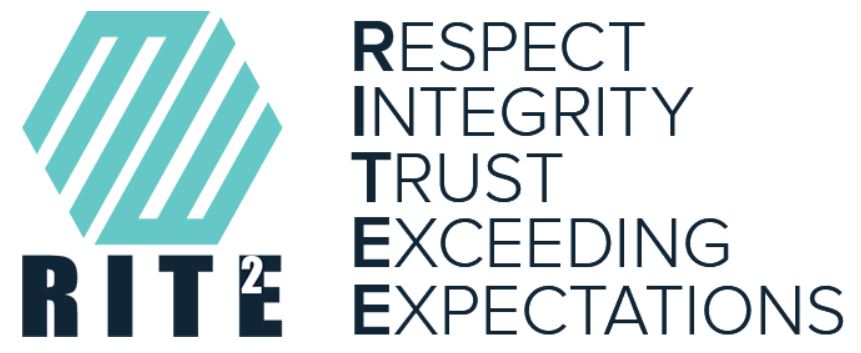
At Motivation Excellence, all decisions need to be supported by our core values of RITE2: Respect, Integrity, Trust and Exceeding Expectations. “This goes beyond the customer experience to also include how supplier partners and employees are all treated equally,” says Jobes.
For a list of more than 50 other core values examples from other companies check out BuiltIn.com.
Using Core Values
Once you’ve developed your core values, broadcast them for the world to see! Seriously, put them on your website for sure. We display ours on our Who We Are tab and make sure they’re visible on our Careers page too. We want prospective clients and employees to know exactly what’s at the heart of our beliefs, and as we’ve already revealed, core values is part of that.
We went a step further when we decorated our new Motivation Excellence office space.
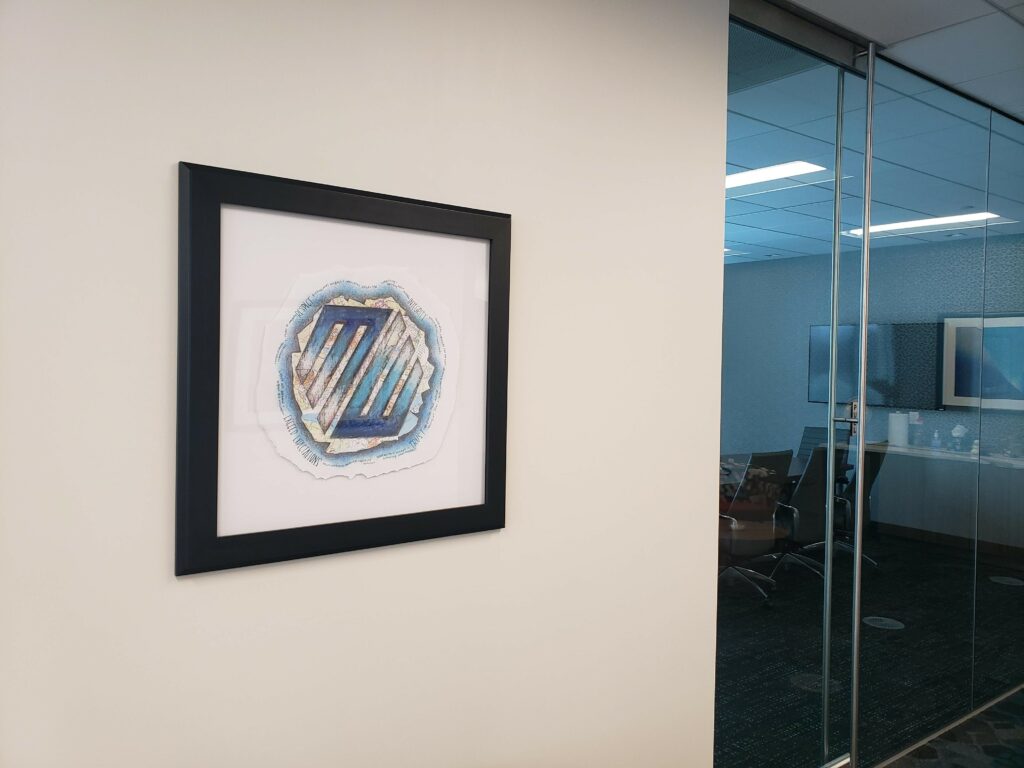
“We designed our new office space around freedom of creativity and inspiration. We felt our core values needed to be displayed in the similarly. Guidelines to provide everyone with a sense of what we believe in, but displayed in a format that allows freeform expression and creative expansion by the individual,” remarks Jobes.
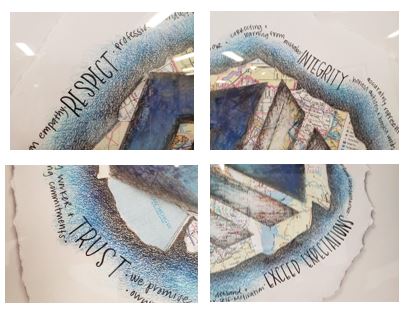
Our core values artwork was designed by Lucy Biberian, the daughter of Judy Biberian, President and Owner of JRI Interior Design. Judy assisted us in creating the layout and design of our new corporate office.
We also use our core values as part of our internal reward and recognition program. Peers can recognize each other, and managers can recognize employees based on one of our core values. Award points go along with the recognition and can be used in a wide variety of ways.
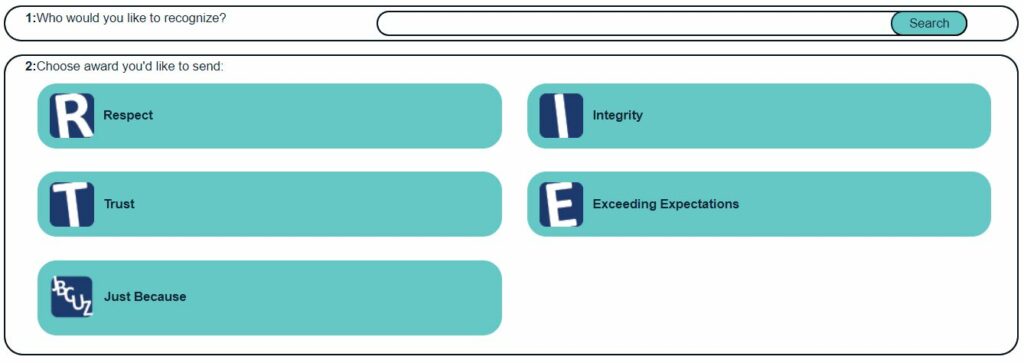
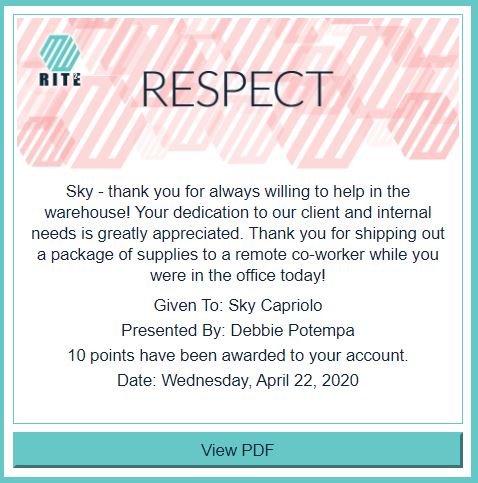
Employees get an email with a certificate showing which core value they’ve exemplified.
Making it Personal
Core values are inherently very personalized to fit your company’s culture. Keeping the heart analogy alive here, they are also one of the best ways to pump the lifeblood of that culture through your organization.
“Clarity and understanding are some of the most important foundations you can instill within a company. There is no room for ambiguity, where people are confused or uncertain on how decisions are made or how to treat other individuals,” Jobes emphatically relays.
Once everyone understands the core values, they can move forward with making decisions based on them. Decisions and interactions with clients, suppliers and coworkers should exemplify those values and if they don’t, you know something is off.
Interestingly, you probably have your own set of personal core values that guide you on a daily basis in and out of work. Perhaps it’s worth the time to write them down as well. It can help you put weight on what’s most important in your life and limit confusion when it comes to making big and little choices (do I take that job? Should I eat the donut? Is it time to have a baby? Etc). Since we make thousands of decisions every day, knowing what is most important to you is a great way to navigate the waters of indecision. DevelopGoodHabits.com will take you through four steps to discover your personal core values.
Okay, now you know about one aspect of a healthy heart for your company. Go out and exercise that knowledge! While you’re thinking about it, eat a salad and do some jumping jacks – that’s good for your human heart. ❤️
